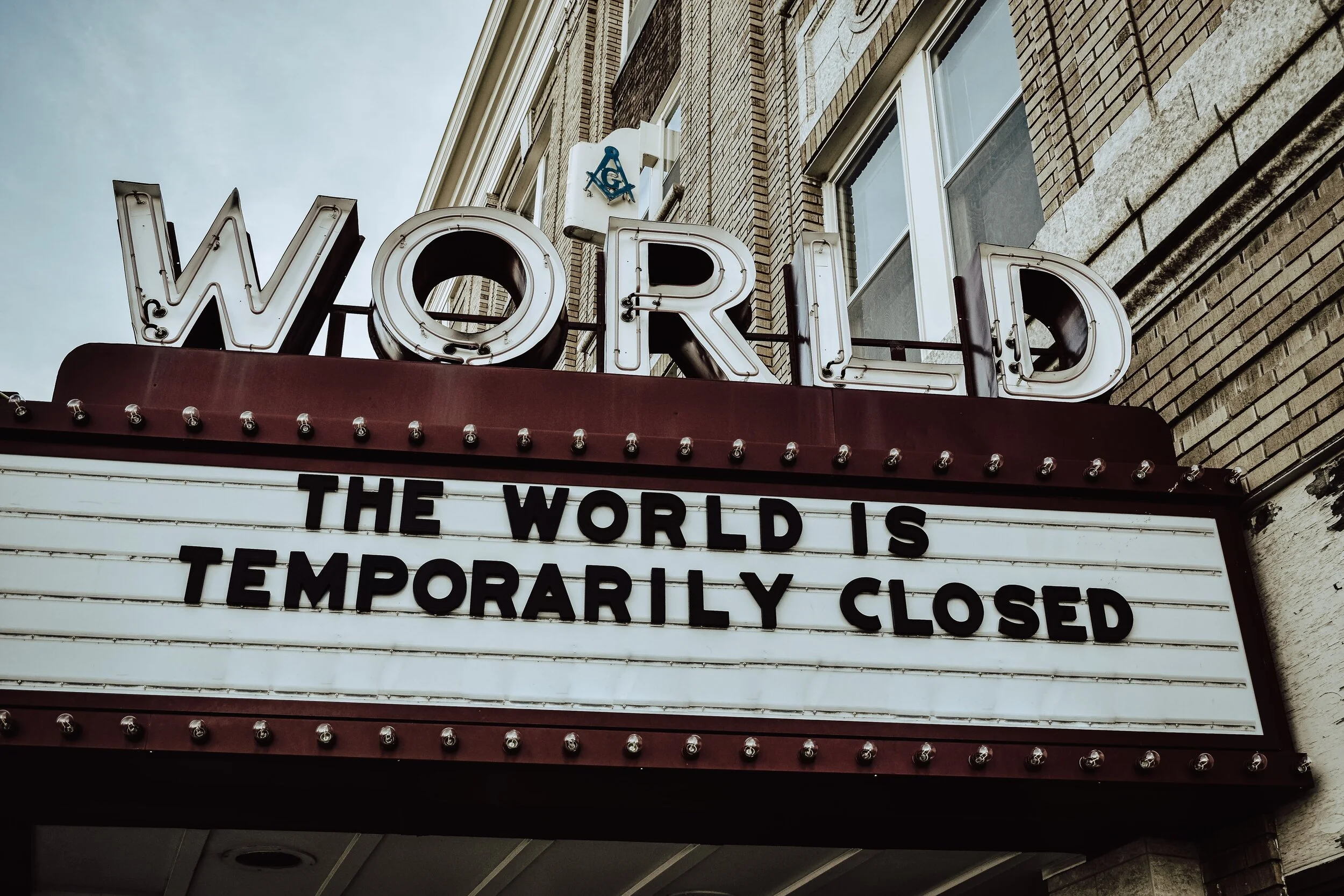4 Ways You Can Ease Your Post-Lockdown Anxiety
The initial stages of the UK government’s roadmap out of lockdown is here, and the light at the end of the tunnel seems just that little bit more visible now. Today (April 12) marks Step 2 of the roadmap, which involves the opening of all non-essential retail, hair and nail salons, gyms, public buildings, outdoor attractions and more. It also means that outdoor hospitality venues such as pub gardens will be allowed to offer table service. And whilst this slow but sure return to normality is wonderful and long-awaited, there’s something beyond coronavirus that’s rearing its head as people prepare for this new phase of life: post-lockdown anxiety.
There have been countless implications of COVID-19 when it comes to mental health, with the pandemic significantly increasing the number of people suffering with anxiety and/or depression in the UK. Even people who have never before experienced any form of mental health struggle have found that they’re dealing with mental health issues for the first time ever as a result of the pandemic. It’s unsurprising; coronavirus has brought fear, uncertainty, instability, isolation – not to mention the victims it has claimed along the way. So as we start to look towards a positive future, free from COVID-19, it’s understandable that so many people are battling feelings of excitement with post-lockdown dread.
None of us will be able to just “go back” to the way things were, because, frankly, we can’t. So many of us will feel the same way when it comes to stepping out into the new normal leading up to a completely post-lockdown world. It’s a niche, and in many ways, unprecedented, form of anxiety. And as we know all too well, there are no quick fixes for anxiety – or any mental health condition for that matter. But knowing that you’re not on your own can help. We can’t offer solutions, unfortunately, but we can offer some suggestions that might just make the overwhelm of the world reopening just that little bit less daunting.
1. Think about your routine and adjust accordingly.
Very few of us follow the same routine that we did 18 months ago, even those of us who have been following the same one for countless years. COVID-19 forced a shake-up in our day-to-day across all aspects of our lives, and our routine ultimately would’ve become the first to suffer. That’s why taking a good look at your routine – past, present, and future – will help you steady and ready yourself for the next chapter of ‘normal’, whatever that may look like. Take note of the things you can bring back into your routine from your old one; equally you’ll also want to think about the things you don’t want to. Then think about your lockdown routine. How can you implement the parts that you love from the past and present to create something that has the remnants of before with the added benefits you may enjoy from the now. Turn to the future and consider the ways in which things may look differently – perhaps you’ll be back in the office, perhaps you’ll get your gym workouts back. Whatever it may be, piece together your ‘normal’ and find a routine that continues to bring comfort and contentment, even on days when it might feel like a bit too much.
2. Take it slow.
Don’t feel the pressure to go all-in. No, you don’t have to be the first one in the pub garden, or the gym, or in the queue at Primark. When you go to a buffet and see 50 different things you want to eat, do you pile them all on your plate at once? Of course not! You go with what you like the look of most, or what you fancy, first, and if you’ve got room later, you might go back for something different. Thinking of the endless list of things opening back up can be terrifying after you’ve got so used to a significantly reduced social calendar or simpler quality of life. Much like at that yummy buffet, you don’t have to eat a piece of everything, nor do you have to keep eating until you feel sick. Create your own roadmap and lay out your priorities and things you’re excited about, or willing to try. You might be ready to get your roots done, but not feel comfortable enough to wander around a busy shopping centre just yet. And that’s totally fine. You don’t have to be out from the minute somewhere opens to closing time – a quick visit somewhere is the perfect place to start. Slow it down, give FOMO the finger, and put yourself (and what you feel comfortable with) first.
3. Set boundaries with the people around you.
Following on closely from the above, setting some boundaries will allow you and others around you to recognise what you feel comfortable – or not so comfortable – with. Anxiety only worsens in environments that make you feel unsafe, uncomfortable, or insecure, so work out where your limits are and put self-preservation first during this time. If all your friends want to visit a pub garden that you know will be jam-packed full of people, possibly not adhering to the rules as much as they should, and that makes you worried, enforce a boundary. Whether that’s through saying no, suggesting an alternative, quieter venue, or even telling them you’re still only comfortable with morning coffee stops, do it. If there’s something that really makes you uncomfortable, or that you find triggers you, just tell your friends/family straight-up. Everyone is at a different stage in this process, and that’s okay.
4. Talk about it.
The oldest trick in the book for mental health, yet sometimes it can be the most difficult. We’ve all established some form of support bubble during this time, whether that’s a close friend, your family, or a WhatsApp group from work. Opening up a dialogue about how you’re feeling will help, because a problem shared is a problem halved. Perhaps you could organise a check-in time each week with someone where you both talk about where your heads are at, and what, if anything, is causing significant problems for you at the time. Don’t forget to tell them what you actually need, if there’s something in particular. You might be looking for reassurance some days, and others, you may just need a friend. Whether you’re just airing it all out, or discussing an action plan to tackle it head-on, communication is key and this kind of mutual support can help lighten the load.
Stepping into Normal 2.0 won’t be an easy thing to do, and won’t come without its worries or some apprehension. But in the end, it will be okay. Take a deep breath, continue to put yourself first, and if you need further support, don’t be afraid to reach out for professional help. You are not alone, and this too shall pass.
For more information and support for anxiety, head to our Anxiety Resources page.
Image credit: Marvin Meyer
Want to support The Unedit and the work that we do? Buy us a coffee.








